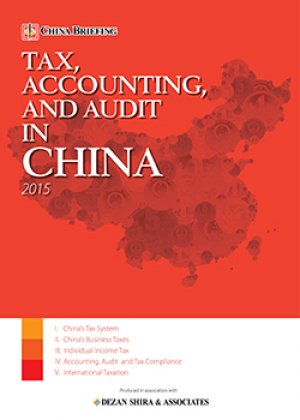Deregistering a Representative Office, Part 2: The Importance of Being Audited
 Last month, we published an article “Deregistering A Representative Office In China,” which listed the complete legal procedure for shutting down a Representative Office (RO) in China. As mentioned in Step 1 of the procedure, the RO is required to apply to the tax bureau for audit and deregistration. For foreign investors in China, this can introduce logistical difficulties insofar as it requires the services of a specialized tax firm and/or auditor, rather than just a law firm.
Last month, we published an article “Deregistering A Representative Office In China,” which listed the complete legal procedure for shutting down a Representative Office (RO) in China. As mentioned in Step 1 of the procedure, the RO is required to apply to the tax bureau for audit and deregistration. For foreign investors in China, this can introduce logistical difficulties insofar as it requires the services of a specialized tax firm and/or auditor, rather than just a law firm.
Representative offices in China are effectively run as cost centers – unable to issue invoices, they require constant injections of capital to cover their overheads. The State Administration of Tax keeps a close eye on the activities of ROs, and is especially concerned to ensure that prior to closure they have satisfied all on-going expenses, taxes due, salaries and welfare payments, including any compensation payments due as part of the closure. Consequently, the closure process requires a third-party audit be conducted upon the RO’s finances up to the date of closure to ensure that all accounts owing have been paid up in full.
Once complete, the audit can be submitted to the local Chinese tax authorities and other interested government agencies. Without an approved audit, the RO may not be allowed to close its doors, meaning financial responsibility will continue to rest on the foreign investor until the audit is complete and closure ratified.
Failure to do so, and just “walking away” can result in the legally responsible person, the director(s) of a foreign holding company and the foreign investor themselves being banned from future investment in China, demonstrating the critical importance of this step to the closure procedure.
Fortunately, conducting the audit is relatively straightforward, as the report will only be conducted on the RO’s income and expenditures (including salary settlements and the payment of invoices and taxes owed) and is much simpler than that for other types of foreign-invested enterprises (FIEs).
Once the audit report is accepted, the RO may then proceed with the latter steps as outlined in Part 1 of this article. Its foreign holding company will be issued a “Notice of Deregistration” and all registration certificates will be cancelled, thus completing the closure procedure.
|
Asia Briefing Ltd. is a subsidiary of Dezan Shira & Associates. Dezan Shira is a specialist foreign direct investment practice, providing corporate establishment, business advisory, tax advisory and compliance, accounting, payroll, due diligence and financial review services to multinationals investing in China, Hong Kong, India, Vietnam, Singapore and the rest of ASEAN. For further information, please email china@dezshira.com or visit www.dezshira.com. Stay up to date with the latest business and investment trends in Asia by subscribing to our complimentary update service featuring news, commentary and regulatory insight. |
![]()
 Tax, Accounting, and Audit in China 2015
Tax, Accounting, and Audit in China 2015
This edition of Tax, Accounting, and Audit in China, updated for 2015, offers a comprehensive overview of the major taxes foreign investors are likely to encounter when establishing or operating a business in China, as well as other tax-relevant obligations. This concise, detailed, yet pragmatic guide is ideal for CFOs, compliance officers and heads of accounting who must navigate the complex tax and accounting landscape in China in order to effectively manage and strategically plan their China operations.
 Setting Up Representative Offices in China (Fourth Edition)
Setting Up Representative Offices in China (Fourth Edition)
This guide is a practical overview for the international businessman to understand the rules, regulations and management issues regarding establishing Representative Offices in China, including detailed description of 2010 regulatory updates.
 Adapting Your China WFOE to Service China’s Consumers
Adapting Your China WFOE to Service China’s Consumers
In this issue of China Briefing Magazine, we look at the challenges posed to manufacturers amidst China’s rising labor costs and stricter environmental regulations. Manufacturing WFOEs in China should adapt by expanding their business scope to include distribution and determine suitable supply chain solutions. In this regard, we will take a look at the opportunities in China’s domestic consumer market and forecast the sectors that are set to boom in the coming years.
- Previous Article China to Expand Tax Breaks for High-Tech Services Outsourcing Enterprises
- Next Article Audit und Compliance in China (Teil 1)


























